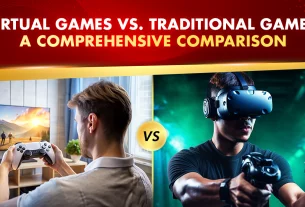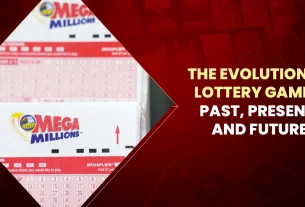Poker has evolved from smoky card rooms and home tables into one of the biggest digital gaming experiences in the world. Today, players can choose between traditional online poker rooms and the increasingly popular live casino poker format, each offering its own advantages, pitfalls, and strategic shifts.
While both forms of poker follow the same core rules, the experience couldn’t be more different. Your decision-making, psychology, bankroll planning, timing, and even your emotional responses change depending on whether you’re staring at a random number generator or a live dealer across the virtual table.
In this deep dive, we break down how the live casino version compares to traditional online poker, why players switch between the two, and how you can adjust your gameplay to win more consistently—whether on a browser or the Khelraja online casino app.
1. The Atmosphere: Human Dealers vs. Algorithms
Traditional online poker relies on RNG software to shuffle cards and determine outcomes. It’s fast, efficient, and designed for players who want pure statistical gameplay with minimal distractions.
Live casino poker, however, introduces:
- A real dealer dealing physical cards
- A broadcast-style studio setup
- Live chat and real-time interaction
- More realistic pacing
- A heightened sense of pressure
This creates a hybrid experience—digital convenience combined with human presence. For many players, this is the closest they can get to a real casino without leaving home.
Live casino poker feels more dramatic, more immersive, and more personal. For some, this increases excitement. For others, it increases anxiety.
But either way—it changes the way you play poker at a fundamental level.
2. Decision Timing: Why Live Poker Forces Better Discipline
In traditional online poker, players often have:
- Lightning-fast decisions
- The ability to multi-table
- Optional fast-fold modes
- Automatic timed actions
This encourages speed—and sometimes sloppy play.
Live casino poker slows the game down. You must wait for:
- The dealer to shuffle
- Cards to be drawn
- Other players to act
- Bets to be placed
This slower pace forces players to think. It minimizes impulse betting and creates an environment where disciplined players thrive.
Beginners often benefit from live casino pacing because it reduces decision overload. Advanced players appreciate it because it allows more time for strategic reading and planning.
3. Reading Players: Live Poker Gives You More Information
In RNG-based online poker, you cannot see anyone. There are no physical tells, no timing variations (except automated ones), and no behavior patterns without third-party HUDs.
In live casino poker, you can observe:
- A player’s hesitation
- Bet sizing patterns
- Emotional reactions (in chat, expression, or tone)
- Rhythm of decisions
- Their comfort level during big pots
This additional layer of psychology makes poker feel richer and more strategic.
While you will not see faces in all formats, the pacing and live environment reveal enough human behavior that good readers gain an edge.
4. Strategy Differences: Live Poker Requires Patience, Online Poker Rewards Volume
Because traditional online poker allows fast multi-tabling, many players rely on:
- Aggressive range-based play
- High-frequency bluffing
- Statistical decision-making
- Long-term EV models
- Volume grinding
Live casino poker flips the formula.
In live poker:
- Patience is more valuable
- Aggression is more noticeable
- Bluff frequency must be lower
- Emotional control matters more
- Small mistakes are amplified
Your poker strategy shifts depending on the platform. Online poker favors hyper-analytical players. Live casino poker favors composed, observant, and adaptable players.
5. Bet Sizing Behavior: Players Act Differently With a Human Dealer
Something fascinating happens when a human is dealing the cards.
Players tend to:
- Bet slightly larger
- Bluff less often
- Chase fewer hands
- Respect dealer presence
- Manage chips more cautiously
There’s a psychological seriousness that comes with a live dealer. This subtly reduces chaotic play and leads to steadier hands and fewer all-ins.
Traditional online poker players bonus-hunt, grind quick hands, and chase variance. Live poker players often play tighter and more strategically.
6. Social Interaction: A Completely Different Experience
Traditional online poker is solitary. You click, fold, raise, and repeat. The silence can feel clinical or even boring for some.
Live casino poker is more:
- Social
- Interactive
- Engaging
- Entertaining
Players chat, watch the dealer shuffle, react to outcomes, and enjoy the back-and-forth of a real game.
For some players, this creates pressure. For others, it creates comfort. Either way, this social aspect affects how people bet.
7. Bankroll Management: Live Poker Demands a Different Approach
Bankroll management dramatically changes when moving from online poker to live casino poker. The pacing, environment, and emotional presence of the dealer create a different rhythm of play that has a direct impact on how much players risk per hand.
While the mathematics of poker stays the same, the human factors surrounding it change everything: how long you play, how often you enter marginal pots, and how much you tilt after a bad beat.
Because RNG poker deals so many hands so quickly, your bankroll swings are violent. You must manage:
- High variance
- Fast losses
- Fast wins
- Constant decisions
Live casino poker is slower, which helps players avoid rapid overbetting. However, it also presents unique risks:
- Longer sessions mean longer exposure
- Emotional connection to dealer increases stakes
- Social energy can fuel risk-taking
Smart players adjust:
Online Poker Bankroll Style
- Higher volume: Online players may see hundreds of hands per hour. This increases variance but also helps long-term math even out—making bankroll trackers essential.
- Lower stakes: Because online rooms move faster, many players intentionally play lower stakes to absorb more variance.
- Strict buy-in multiplier: Online grinders often follow rigid bankroll rules (20–40 buy-ins) to reduce risk of ruin.
- Quick decisions: The speed creates mechanical decision-making—useful for volume, but sometimes dangerous when tilt creeps in.
- More statistical analysis: Online players rely on ranges, solvers, and probability calculators more frequently because the interface allows it.
Live Poker Bankroll Style
- Larger individual buy-ins: Because the pace is slower, players often choose fewer but deeper buy-ins to stay in longer rounds.
- More conservative betting: The emotional presence of a dealer naturally slows down reckless aggression.
- Focus on session results: Instead of hand-by-hand data, players think in terms of full sessions or rounds in live games.
- More time to observe patterns: Slow pacing gives players the ability to evaluate opponents’ tendencies in ways online players cannot.
This difference in bankroll strategy is one of the biggest reasons why players transitioning between formats often struggle—they carry the wrong expectations. For real money earning games, this difference matters enormously.
8. Skill Expression: Who Really Has the Advantage?
Skill in poker is not universal; it shifts depending on the environment. RNG online poker rewards cold mathematics, solver-perfect ranges, and pattern recognition. Live casino poker rewards social intuition and emotional discipline.
Neither format is “more skillful”—they simply test different strengths. Understanding the difference helps players adapt and win more consistently.
Traditional online poker rewards:
- Math expertise: Online players thrive when they can calculate pot odds, ranges, and EV quickly.
- Range memorization: Tight-aggressive and solver-approved ranges perform extremely well in fast online environments.
- Volume grinding: Success often comes from playing thousands of hands and letting math do the work.
- Predictable structure: No human influence means every decision is pure logic and database-backed strategy.
- Instant decision-making: Fast interfaces allow near-robotic precision when players stay focused.
Live casino poker rewards:
- Emotional control: The pressure of a live table environment reveals impatience and tilt more quickly.
- Social strategy: Players can pick up on timing tells, betting hesitations, and behavior patterns.
- Patience: Since live games are slower, successful players fold more, chase less, and focus on higher-value hands.
- Tactical adaptability: Live games require improvisation because human behavior introduces unpredictability.
Both require skill—but the skills are not identical. By recognizing which strengths each format requires, players can train appropriately and avoid carrying the wrong playstyle into the wrong environment.
9. Accessibility: Why Live Casino Poker Is Growing Faster
There’s a reason live casino poker has exploded in popularity on platforms like the Khelraja online casino.
Players love:
- The tension
- The realism
- The ability to interact
- The feeling of being in a casino
- Authentic shuffling and dealing
- Human connection in online gambling games
- The social aspect of live leaderboards, which also comes with generous bonuses
For many, it provides a richer, more satisfying experience compared to fast-paced RNG poker.
10. Which One Should You Choose?
Choosing between traditional online poker and live casino poker isn’t about which is better—it’s about which aligns with your skills, your personality, and your goals. Your learning style, your risk tolerance, and even your social preferences will influence which format you naturally perform better in.
Choose Traditional Online Poker If You Want:
- Fast hands: Ideal for players who prefer constant action and rapid decision cycles.
- Solver-based precision: The algorithmic nature of online play makes math the most important skill.
- Multi-tabling: You can play several tables at once, drastically increasing volume and potential winnings.
- Grinding: Ideal for building skill through repetition and accumulating long-term statistical edges.
- Pure math-based play: No social layers, no pressure—just cards and probability.
Choose Live Casino Poker If You Want:
- Real human dealers: A more immersive casino-like experience.
- Slower, realistic pacing: Perfect for players who like time to think instead of being rushed.
- Social interaction: Chatting with dealers and players adds a sense of community and fun.
- Emotional and strategic depth: Human decisions create more variation and more opportunities to exploit behavior.
- High-engagement play: Ideal for players who enjoy atmosphere and theatrics.
Your ideal format may also depend on how much time you want to invest, how confident you are in rapid-fire decisions, and whether you prefer logic-driven or psychology-driven gameplay.
Online poker builds technical skill. Live poker builds psychological skill. Together, they make you a more complete poker player.
Final Thoughts: Two Poker Worlds, One Winning Strategy
Both traditional online poker and live casino poker offer unique ways to test your skill, mentality, and discipline.
But the most important thing to remember is this: Poker is not just a game of cards—it’s a game of decisions. And every decision is shaped by the environment you play in.
If you understand how pacing, psychology, dealer presence, and strategy differ between formats, you’ll perform better in both worlds.
When you’re ready to experience the thrill of live casino poker with real dealers, smooth gameplay, and trusted payouts, Khelraja online casino gives you the best of both gaming worlds.






